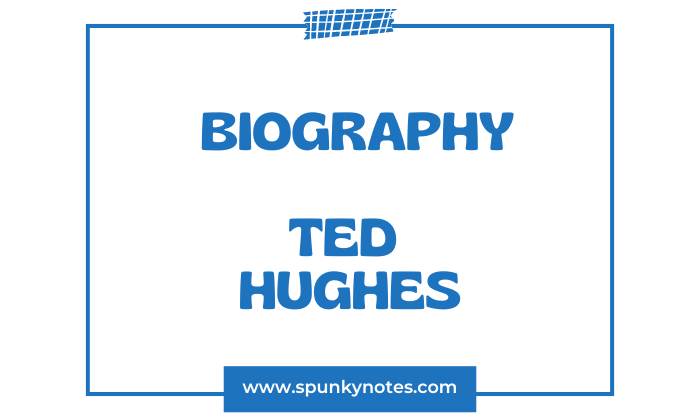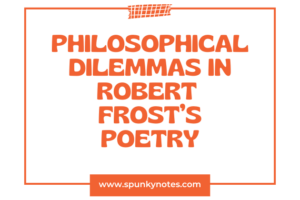

Estimated Reading Time: 5 min
Ted Hughes Biography & Literary Works
Category |
Information |
|---|---|
| Date of Birth | August 17, 1930 |
| Birth Place | Mytholmroyd, Yorkshire, England |
| Date of Death | October 28, 1998 |
| Cause of Death | Myocardial infarction |
| Burial Place | North Tawton, Devon, England |
| Age | 68 |
| Literary Age/Era | Postmodern Era |
| Education | Cambridge University |
| Love Affair | Assia Wevill |
| Matrimonial Life | Married Twice |
| Spouse | Sylvia Plath (1956-1963), Carol Orchard (1970-1998) |
| Children | Frieda Hughes, Nicholas Hughes |
| Major Events in Life | Marriage to Sylvia Plath, Death of Sylvia Plath, Appointed Poet Laureate (1984) |
| First Publication | “The Hawk in the Rain” (1957) |
| Last Publication | “Birthday Letters” (1998) |
| Posthumous Publication | Various collections of letters and unpublished poetry |
| Famous Quotation | “What happens in the heart simply happens.” |
Ted Hughes Biography
Life
Edward James Hughes, known as Ted Hughes, was born on August 17, 1930, in Mytholmroyd, Yorkshire, England. He grew up in the small town of Mexborough, where his family moved when he was seven. The moors, rivers, and wildlife of Yorkshire feature prominently in his work, contributing to his distinctive voice as a poet.
Hughes attended Cambridge University, where he met Sylvia Plath, whom he married in 1956. Their marriage was both creatively productive and tumultuous, ultimately ending in separation shortly before Plath died in 1963. This event had a profound impact on Hughes’ life and work.
Hughes later married Carol Orchard in 1970 and lived with her until he died in 1998. He had two children, Frieda and Nicholas, with Sylvia Plath.
Friends
Ted Hughes had several close friends and acquaintances who played significant roles in his life and literary career. Some notable individuals among his circle of friends include:
Sylvia Plath: Hughes’ first wife and fellow poet. Their relationship was highly influential on his work, and her death deeply affected him.
Seamus Heaney: The Irish poet and Nobel laureate was a close friend and colleague of Hughes. They shared a mutual respect and often corresponded about their work.
Philip Larkin: Larkin and Hughes were contemporaries and had a professional relationship, though their relationship was less intimate.
Assia Wevill: A poet and writer, Wevill was Hughes’ partner after his separation from Plath. Their relationship ended tragically with Wevill’s suicide in 1969.
Education
Ted Hughes attended Cambridge University, where he studied archaeology and anthropology, switching from English literature. His academic background influenced his deep interest in mythology and nature, which became central themes in his poetry.
Literary Career
Hughes began writing poetry at a young age and published his first significant work, “The Hawk in the Rain,” in 1957.
He was famous for writing about nature in a clear and sometimes harsh way. His work includes poetry collections, plays, translations, and children’s books.
Hughes held the prestigious position of Poet Laureate of the United Kingdom from 1984 until he died in 1998, a role that highlights his significance in the literary world.
Environmental Advocacy
Later in his life, Hughes became an advocate for environmental causes. He was involved in various conservation efforts, and his work often reflected a deep concern for the environment and the impact of human activity on nature.
Hughes’ poetry is characterized by its intense focus on the natural world. It often portrays nature as powerful, violent, and indifferent.
Poet Laureate
Hughes held the esteemed position of British Poet Laureate for 14 years, from 1984 to 1998. He wrote many poems commemorating public events and notable occasions during his tenure. These poems are about the literary culture of the UK.
Collaboration with Visual Artists
Hughes collaborated with several visual artists, including Leonard Baskin and Reg Lloyd. These collaborations resulted in illustrated books and prints that combined Hughes’ poetry with visual art.
Religion
Ted Hughes’s religious views were complex and often reflected his interest in mythology and spirituality. His work often examines themes of ritual, change, and the sacredness of the natural world.
He did not adhere to a specific religious tradition but was deeply influenced by a sense of the mystical and the primal forces in nature.
Controversy
Hughes’ life and career were often surrounded by controversy, particularly concerning his relationship with Sylvia Plath. He faced significant criticism for his perceived role in her tragic death and for the control he exercised over her literary estate.
After Plath’s death, Hughes was often vilified by her admirers, who blamed him for her demise. This controversy affected his public image and his relationship with literary circles.
Death
Ted Hughes died on October 28, 1998, from a myocardial infarction. Struggles with mental health marked Hughes’ life, influencing both his personal life and his literary output. For much of his later life, he lived in North Tawton, Devon, England, and his ashes were scattered there.
Literary Works
The Hawk in the Rain (1957)
Genre: Poetry
Description: This collection established Hughes as a major poet. The poems‘ raw and powerful imagery, often focusing on the brutality of the natural world, is renowned.
Crow (1970)
Genre: Poetry
Description: “Crow” is one of Hughes’ most famous collections. It features a series of poems about a mythical character, Crow, who embodies a primal and darkly humorous aspect of the human condition.
Tales from Ovid (1997)
Genre: Poetry
Description: This book is a modern adaptation of Ovid’s Metamorphoses. People celebrate Hughes’ versions of these classic myths for their vitality and fidelity to the original spirit.
Birthday Letters (1998)
Genre: Poetry
Description: This collection of poems shows Hughes’ relationship with Sylvia Plath. It provides a personal and emotional look into their life together and how her death affected him.
Lupercal (1960)
Genre: Poetry
Description: “Lupercal” continued to look at nature and the human mind, further strengthening Hughes’ reputation as a top poet of his time.
The Iron Man (1968)
Genre: Children’s Literature
Description: A modern fairy tale, this book tells the story of a giant metal man who befriends a young boy. It has been adapted into a successful animated film, “The Iron Giant.”


